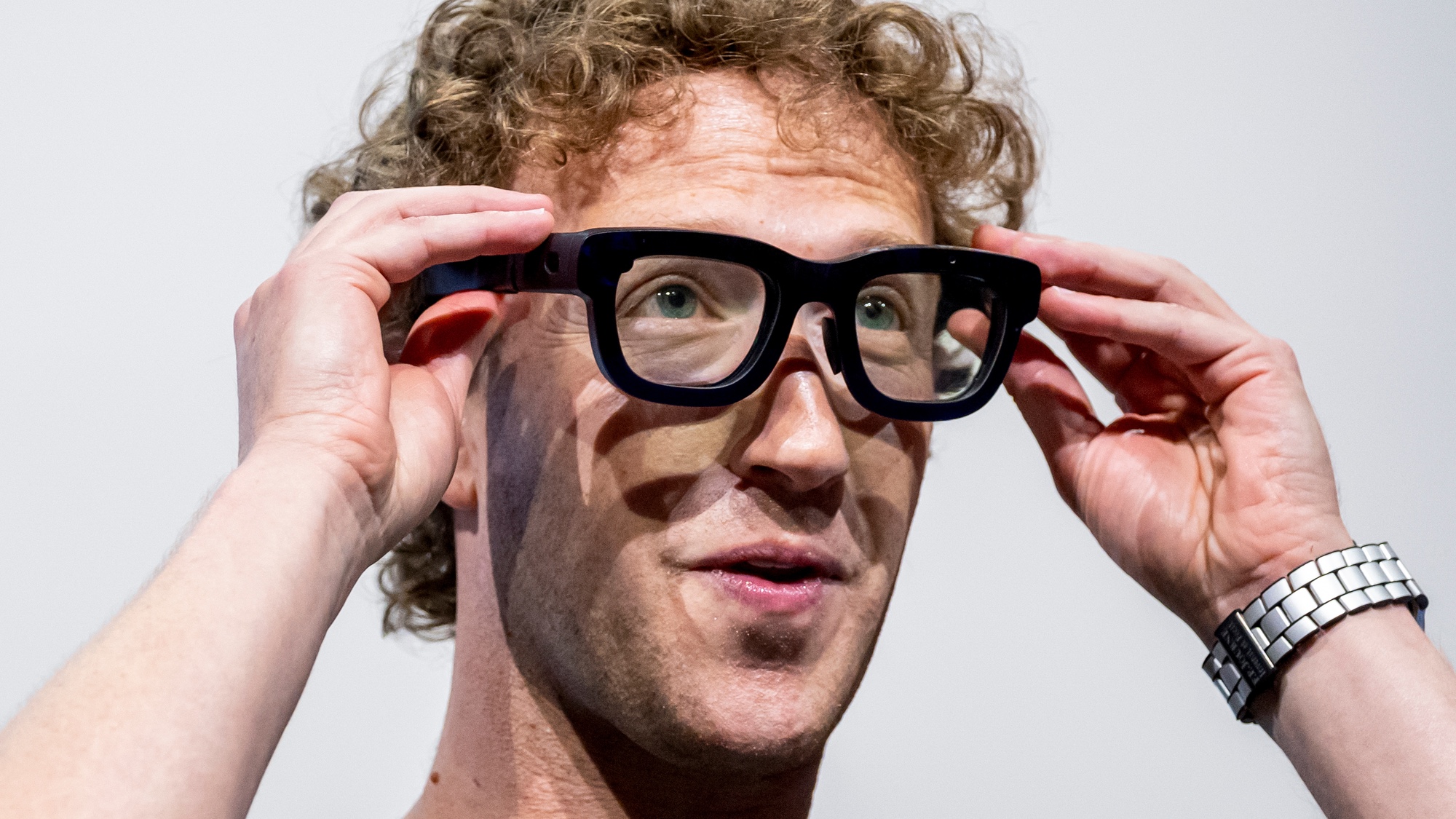Mark Zuckerberg says AI superintelligence is 'now in sight' — here's what Meta thinks that means for you
A personal superintelligence for everyone


Superintelligence in this context is Mark Zuckerberg — or Meta's — term for artificial general intelligence (AGI) which essentially means AI has its own independent consciousness, that is able to autonomously learn, understand, communicate and form goals without the guiding hand of a human. Various AI companies, including OpenAI, Anthropic, Google, Microsoft and Meta are committed to developing AGI in the near future.
Mark Zuckerberg says humanity is about to advance AI to the level of "superintelligence" and we're all going to be interacting with it through a pair of smart glasses.
Which is perhaps what you'd expect from the CEO of the company behind the Meta Quest 3, the recent Oakley Meta HSTN and an upcoming pair of advanced AR glasses.
But still, Zuckerberg outlined his thoughts on the future of AI in an essay posted to a plain text website yesterday ahead of Meta's earnings call. In it, he says humanity's newly developed superintelligence should take the form of "a new era of personal empowerment where people will have greater agency to improve the world in the directions they choose."
He goes on to say that Meta's vision is "distinct from others in the industry who believe superintelligence should be directed centrally towards automating all valuable work, and then humanity will live on a dole of its output."
These are some notable comments coming in the same week as Sam Altman, the CEO of Meta's AI rival OpenAI, likened the development of ChatGPT's GPT-5 model to the Manhattan Project.
As Zuckerberg tells it, smart glasses will become our "primary computing devices" with which to interact with the new personal superintelligence his firm is building. Conveniently bundling together two of the pillars of Meta's business model.
"Personal devices like glasses that understand our context because they can see what we see, hear what we hear, and interact with us throughout the day will become our primary computing devices," he wrote.
Get instant access to breaking news, the hottest reviews, great deals and helpful tips.
The limited edition Oakley Meta HSTN smart glasses offer some spec boosts over the Ray-Ban Meta glasses, targeting the sportier crowd of wearable tech enthusiasts.
Meta has been on a well-publicized hiring spree recently, paying as much as $100m to lure top talent away from other tech firms to run its AI development. The company has also paid $14.3 billion to acquire a 49% stake in Scale AI, a data annotation company that effectively trains AI models at, well, scale.
'Novel safety concerns'

It isn't all sunshine and rainbows as Zuckerberg takes a moment to mention that the arrival of superintelligence will raise "novel safety concerns" and that "we'll need to be rigorous about mitigating these risks and careful about what we choose to open source".
That's interesting for two reasons. Firstly, he doesn't specify whether "we" means Meta itself or he's using a collective pronoun for all of humanity. Secondly, Meta's Llama LLM is — according to the company — currently an open source resource. But the Open Source Initiative contests this because it claims Meta's licensing terms fail the standard. Furthermore, the Trump Administration's AI Action Plan strongly favors open-sourcing AI models although the final decision rests with the developer.
So, theoretically, he could be hinting at a redrawing of the map from Meta about what technology it's prepared to give away and what it will keep internal.
Mike Proulx, a research director at analyst firm Forrester cautioned that Zuckerberg's vision of superintelligence empowering people may come from donning a pair of rose-tinted Ray-Ban Meta glasses.
How bad the impact of superintelligence gets depends, in part, on the ethics of the companies developing it.
Mike Proulx, VP, Research Director, Forrester
“Meta’s CEO is hopeful that superintelligence will be used to empower people and not be “focused on replacing large swaths of society.” But human replacement is already happening, and this is just the beginning," he wrote. "Business leaders see AI as an efficiency play above all else. The fact is that AI can save companies time and money. That’s a good thing for shareholder value. But will it be good for society?
“As with every major technology disruption, some good will come from it, but also some bad. How bad the impact of superintelligence gets depends, in part, on the ethics of the companies developing it. Meta says it “will need to be rigorous about mitigating these risks and careful about what we choose to open source” but many companies are vying feverously to win the superintelligence race. But at what cost are they willing to do so? Mere trust in companies to do the right thing just isn’t going to cut it.”
Either way, there's no doubt that Zuckerberg is going all-in on AI in a similar way his company did with the metaverse concept back in 2021. I expect he'll be a bit more successful this time around.
And if you want to read Zuck's entire missive for yourself, you can find it here. Of course, the obvious question we all have is whether he actually wrote this himself or if he had an AI do it for him. Let me know what you think in the comments below.
Follow Tom's Guide on Google News to get our up-to-date news, how-tos, and reviews in your feeds. Make sure to click the Follow button.
More from Tom's Guide
- What is artificial general intelligence (AGI)? Everything you need to know
- Meta smart glasses with display revealed in mega leak — here's everything they can do
- I spent my first 24 hours with the Oakley Meta HSTN glasses — they're brilliant except for one glaring problem

Jeff is UK Editor-in-Chief for Tom’s Guide looking after the day-to-day output of the site’s British contingent.
A tech journalist for over a decade, he’s travelled the world testing any gadget he can get his hands on. Jeff has a keen interest in fitness and wearables as well as the latest tablets and laptops.
A lapsed gamer, he fondly remembers the days when technical problems were solved by taking out the cartridge and blowing out the dust.
You must confirm your public display name before commenting
Please logout and then login again, you will then be prompted to enter your display name.
 Club Benefits
Club Benefits






